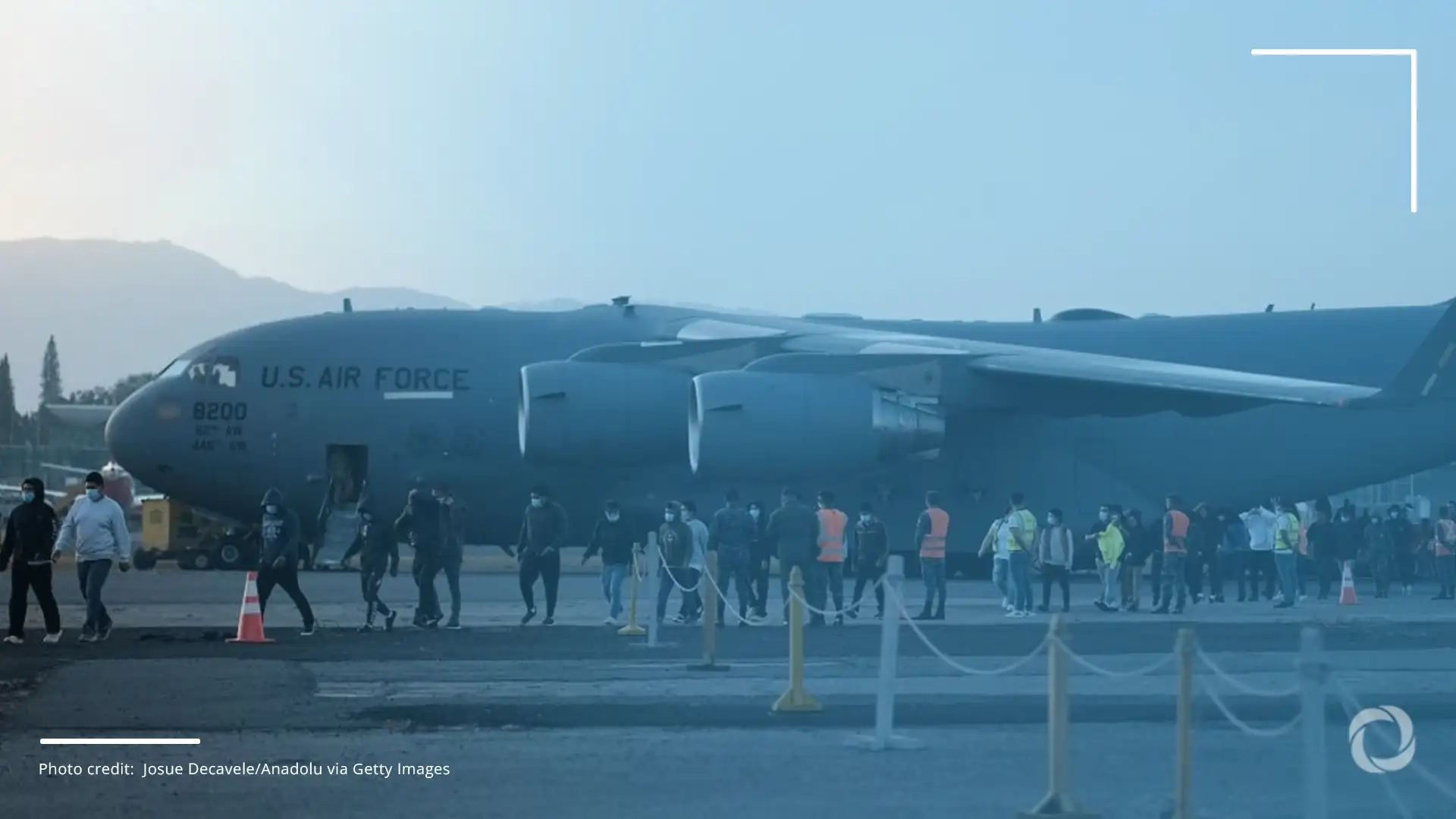The Trump administration’s deportation policies have begun to cast their net over the African continent, sparking a complex web of diplomacy, economic motivation, and ethical concerns. By having African nations accept deportees, the U.S. is seen to be linking migration enforcement with broader strategic interests, from trade negotiations to access to resources.
Controversial agreement with Uganda
Uganda has recently emerged as a significant player in this unfolding narrative. This East African nation has signed an agreement with the U.S., viewed by some to be “controversial”, pledging to accept migrants from third countries who have been rejected by American immigration officials.
Vincent Bagiire Waiswa, the Permanent Secretary of Uganda’s Ministry of Internal Affairs, has clarified that while Uganda is open to this arrangement, it will impose strict conditions. Specifically, the country will not accept deportees who have a criminal record or unaccompanied minors, reflecting its commitment to uphold humanitarian values in the face of an ever-growing refugee crisis.
Uganda is currently home to nearly two million refugees, primarily from war-torn South Sudan and the Democratic Republic of Congo, reflecting the nation’s ongoing challenges with migration, according to UNHCR.
However, officials emphasize that this arrangement is intended to be temporary and favor the reception of individuals from within the African continent. This cautious approach highlights Uganda’s delicate balancing act between its humanitarian obligations and the pressures of international diplomacy, as it navigates its intricate relationship with the United States, experts noted.
Uganda not alone
But Uganda is not alone in this endeavor. Other African nations, including South Sudan, Eswatini, and Rwanda, are also engaging in agreements to accept U.S. deportees, each driven by their unique motivations.
- South Sudan has welcomed eight deportees. The acceptance of these individuals is seen as being a strategic move aimed at negotiating the lifting of the sanctions imposed on its government officials, as well as addressing visa restrictions that affect its nationals.
- In the small monarchy of Eswatini, the government has accepted five deportees, although these individuals are viewed by U.S. authorities to have serious criminal backgrounds. This decision has sparked public outcry, with critics questioning the constitutionality of such actions and rallying against the reception of those who they deem to be “illegal aliens.” Nevertheless, Eswatini’s leadership appears to be strategically leveraging this situation to bolster its standing in Washington, potentially unlocking much-needed financial assistance.
- Rwanda is set to receive 250 deportees from the U.S., with some having already arrived. Analysts say the move aligns with financial incentives from the Trump administration aimed at strengthening ties amid regional tensions with the Democratic Republic of Congo.
Conditions and treatment of deportees
Civil society groups are concerned about the unclear legal status of the deportees and the deportation conditions, pointing out that the deportation process itself has been less than transparent. Across these African states, deportees often face detention or isolation upon arrival. It has been reported that seven out of the eight men sent to South Sudan from the United States earlier this year are still being held. They are from Cuba, Laos, Mexico, Myanmar, and Vietnam. The Foreign Ministry has stated that South Sudan will decide whether these men should remain in the country or be sent elsewhere. The eighth person, who is a citizen of South Sudan, has already been released and is back with his family, the ministry confirmed.
A Foreign Ministry spokesperson, Apuk Ayuel Mayen, told reporters in Juba that the U.S. had deported the eight men based on talks between the two countries, not because of a formal agreement. However, she gave little more information about why these men are being held or the legal reasons behind their detention.
Lawyers representing the five men deported to Eswatini allege ongoing access problems for their clients and argue that their detention amounts to unlawful imprisonment. The lawyers state that communication with their clients has been restricted, which is complicating efforts to mount legal challenges or provide adequate counsel.
Why does the US engage in these deals? Is it truly a win-win situation?
International human rights organizations have condemned these deportation agreements because they undermine asylum rights and violate international law.
Human rights advocate Nicholas Opio has condemned the agreement, which he views as “human trafficking”. Speculating as to whether the individuals involved were refugees or prisoners, Opio stated it “undermines human dignity for political gain”.
Melusi Simelane of the Southern Africa Litigation Centre told DevelopmentAid that the financial motivations are overshadowing human considerations.
“Financial incentives from the US reportedly accompany these deals – Rwanda reportedly secured around $272 million from the UK previously, and similar cash grants are expected from the US. These funds are viewed as vital lifelines by impoverished governments but raise ethical questions about the commodification of human lives,” Simelane commented.
According to documents examined by The New York Times, the government of Eswatini sought approximately $500 million in exchange for accepting the five deportees.
Professor Mwambutsya Ndebesa from Makerere University College of Humanities and Social Sciences has highlighted an interesting dynamic involving countries like Rwanda, South Sudan, and Uganda. According to Ndebesa, these nations may be gaining indirect benefits due to their willingness to accept deportees, despite not receiving direct financial compensation. Instead, these countries could be benefiting from concessions such as reduced tariffs on their exports as part of a broader strategy to ease trade tensions with the United States.
One way or another, this shift is placing African nations at a crossroads: prioritizing closer U.S. ties or addressing the ethical concerns of accepting individuals fleeing hardship. The unfolding dynamics highlight how geopolitics can push potential allies into reluctant roles. The consequences for deportees and host nations remain unclear but underscore the complex interplay of opportunity, challenge, ethics, and shared international responsibility.

